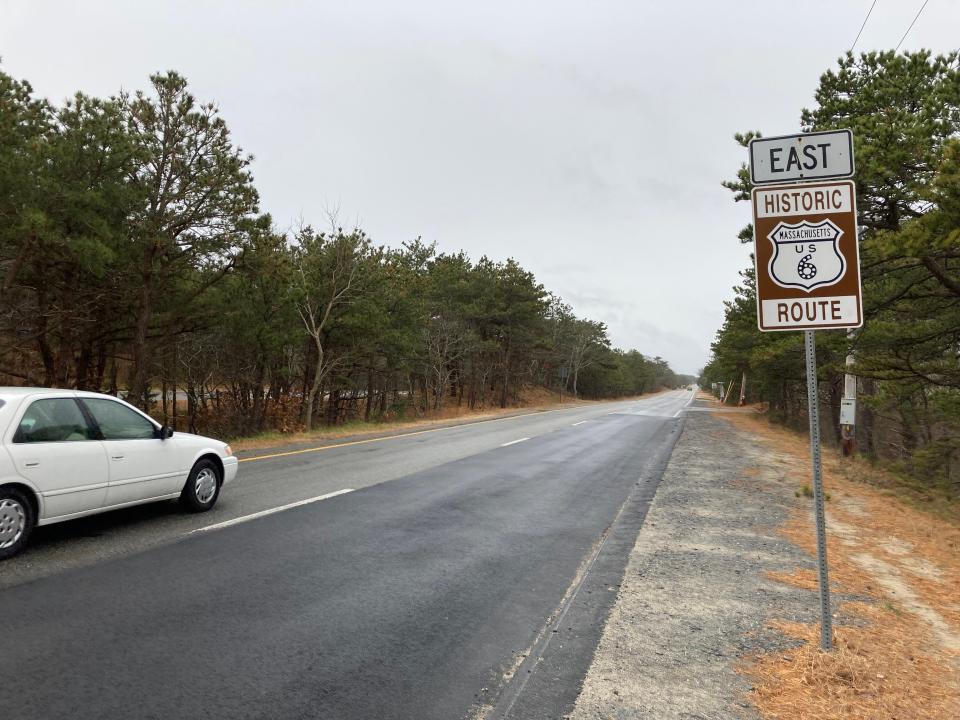If Vail, Colorado can, Provincetown could too. A new idea on year-round housing
PROVINCETOWN — Can a town purchase its way out of a housing crisis with deed restrictions on residential homes?
The Select Board, Community Housing Council, and Year-Round Market Rate Rental Housing Trust held a work session on Dec. 19 to discuss the possibility.
George Ruther, housing director for Vail, Colorado, thinks it’s possible.
He gave a presentation about Vail’s success in purchasing deed restrictions on residential homes, thereby increasing the housing stock for the resort’s year-round community. The program, “Vail InDeed,” is part of a larger initiative to increase residential housing for year-round and seasonal residents living and working in the Colorado community.

“We have a rock-solid enforcement practice,” Ruther said. “We have policies in place to ensure they are enforced.”
Vail, Colorado has a housing shortage similar to Provincetown
Vail has a housing problem similar to Provincetown’s.
A year-round population of 5,300 live in Vail. There are 7,200 dwelling units, but only 1,750 are occupied by locals. When homes sell, nine out of 10 are sold as second homes or to investors. They rarely go back into use for local occupancy, according to Ruther.
Vail is also similar to Provincetown in that there’s little land left to develop. The town is surrounded by White River National Forest, land that’s off-limits to development. The resort draws skiers and snow enthusiasts in the winter, and hikers and fly fishers in the summer. U.S. Forest Service property surrounds the town, making an island of it. There are plenty of homes, Ruther said, but 70% are vacant and unoccupied.
In a 2016 draft housing playbook written by the town, Provincetown is described as experiencing an increase in home prices over the last twenty years that has made housing priced outside the reach of the majority of residents. The lack of stable housing has a severe impact on the Provincetown community character and the town's future viability, and resulted in the outmigration of many of our year-round residents and families, according to the document.
As of November, the median sales price this year for a single-family home in Provincetown was $2,075,921, according to Cape Cod and Islands Association of Realtors.
Vail makes a decision in 2017 to look at deed restrictions for homes
Vail recognized housing as one of three big concerns when it set out a master plan in 1976. Identifying housing solutions for a seasonal workforce continues today, Ruther said. In 2017 town officials decided to create a program to increase deed restricted homes and enhance the community side of the resort town.
More:Confused about 'affordable' housing on Cape Cod? Here's a primer.
In a housing policy statement adopted by Vail officials, deed restricted homes in the resort setting were deemed critical infrastructure.
Here's how the Vail program works
Vail’s is not a typical deed restriction program. The Town Council works in partnership with the Vail Housing Authority, but the Authority has the decision-making ability regarding deed purchases.
Deed restrictions payments are determined by comparable sales. The Authority negotiates the purchase price of a deed restriction based on comparable sales, Ruther said. The approximate value has ranged between 15-20% of the fair market value of the home. As prices escalated, the town started buying the restrictions for about 22% of fair market value, Ruther said.
The town has invested $12 million in the program, or about $69,000 per deed restriction, Ruther said. Vail uses housing program funds and capital project funds to purchase the restrictions. In November 2021, voters approved a sales tax increase of ½ of 1% for housing solutions in the community. That increase generates $3.5 to $4 million annually, Ruther said.
The restrictions are in perpetuity, and they transfer with the title in perpetuity.
Why would a homeowner accept a deed restriction?
So why should owners accept the restrictions? Owners can do whatever they want with the money. They can use it as a down payment. They can fund home repairs with it.
“Businesses see it as a solution,” Ruther said. “This is a non-regulatory response.”
The town enforces deed restrictions by requiring owners to submit sworn affidavits and provide supporting documents for the preceding 12 months. The town has zero tolerance for non-compliance. It is considered a misdemeanor violation punishable by up to $999 per day.
Occupants in deed restricted properties must work a minimum of 30 hours at an Eagle County business. They must get 70% of their income from that business.
Not all properties are suitable for deed restrictions
Not all properties are suitable for deed restriction, especially the million-dollar homes nestled in the mountains where owners can ski to the lifts and lodge. But the policy has no development impacts on the community. The home is already built, Ruther said.
He also said Vail uses all approaches it can to secure year-round housing. The town buys homes, acquires them through new developments, and uses development impact fees to fund the program. But he acknowledges the finite number of properties.
Several members of the public on Dec. 19 urged Provincetown officials to take immediate steps to ensure locals had year-round living opportunities. Town Manager Alex Morse asked the public to support town efforts in that regard by showing up to board and commission meetings, town forums and town meetings.
“Maybe this can be our legacy,” said Dana Masterpolo.
Contact Denise Coffey at dcoffey@capecodonline.com. Follow her on Twitter: @DeniseCoffeyCCT.
Gain access to premium Cape Cod Times content by subscribing.
This article originally appeared on Cape Cod Times: Could purchasing deed restrictions help Provincetown's housing crisis?

